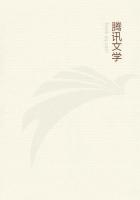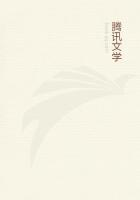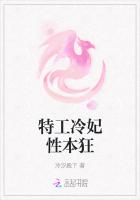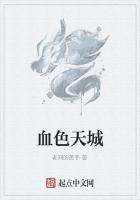In the infancy of our knowledge we seize with greediness the good that is within our reach; it is by after-consideration, and in consequence of discipline, that we refuse the present for a greater good at a distance.The nobility or elevation of all arts, like the excellence of virtue itself, consists in adopting this enlarged and comprehensive idea, and all criticism built upon the more confined view of what is natural, may properly be called shallow criticism, rather than false; its defect is that the truth is not sufficiently extensive.
It has sometimes happened that some of the greatest men in our art have been betrayed into errors by this confined mode of reasoning.Poussin, who, upon the whole, may be produced as an instance of attention to the most enlarged and extensive ideas of nature, from not having settled principles on this point, has in one instance at least, I think, deserted truth for prejudice.He is said to have vindicated the conduct ofJulio Romano, for his inattention to the masses of light and shade, or grouping the figures, in the battle of Constantine, as if designedly neglected, the better to correspond with the hurry and confusion of a battle.Poussin's own conduct in his representations of Bacchanalian triumphs and sacrifices, makes us more easily give credit to this report, since in such subjects, as well indeed as in many others, it was too much his own practice.The best apology we can make for this conduct is what proceeds from the association of our ideas, the prejudice we have in favour of antiquity.Poussin's works, as I have formerly observed, have very much the air of the ancient manner of painting, in which there are not the least traces to make us think that what we call the keeping, the composition of light and shade, or distribution of the work into masses, claimed any part of their attention.But surely whatever apology we may find out for this neglect, it ought to be ranked among the defects of Poussin, as well as of the antique paintings; and the moderns have a right to that praise which is their due, for having given so pleasing an addition to the splendour of the art.
Perhaps no apology ought to be received for offences committed against the vehicle (whether it be the organ of seeing or of hearing) by which our pleasures are conveyed to the mind.We must take the same care that the eye be not perplexed and distracted by a confusion of equal parts, or equal lights, as of offending it by an unharmonious mixture of colours.We may venture to be more confident of the truth of this observation, since we find that Shakespeare, on a parallel occasion, has made Hamlet recommend to the players a precept of the same kind, never to offend the ear by harsh sounds:- "In the very torrent, tempest, and whirlwind of your passions," says he, "you must beget a temperance that may give it smoothness." And yet, at the same time, he very justly observes, "The end of playing, both at the first and now, is to hold, as it were, the mirror up to nature." No one can deny but that violent passions will naturally emit harsh and disagreeable tones; yet this great poet and critic thought that this imitation of nature would cost too much, if purchased at the expense of disagreeable sensations, or, as he expresses it, of "splitting the ear."The poet and actor, as well as the painter of geniuswho is well acquainted with all the variety and sources of pleasure in the mind and imagination, has little regard or attention to common nature, or creeping after common sense.By overleaping those narrow bounds, he more effectually seizes the whole mind, and more powerfully accomplishes his purpose.This success is ignorantly imagined to proceed from inattention to all rules, and in defiance of reason and judgment; whereas it is in truth acting according to the best rules, and the justest reason.
He who thinks nature, in the narrow sense of the word, is alone to be followed, will produce but a scanty entertainment for the imagination: everything is to be done with which it is natural for the mind to be pleased, whether it proceeds from simplicity or variety, uniformity or irregularity: whether the scenes are familiar or exotic; rude and wild, or enriched and cultivated; for it is natural for the mind to be pleased with all these in their turn.In short, whatever pleases has in it what is analogous to the mind, and is therefore, in the highest and best sense of the word, natural.
It is this sense of nature or truth which ought more particularly to be cultivated by the professors of art; and it may be observed that many wise and learned men, who have accustomed their minds to admit nothing for truth but what can be proved by mathematical demonstration, have seldom any relish for those arts which address themselves to the fancy, the rectitude and truth of which is known by another kind of proof: and we may add that the acquisition of this knowledge requires as much circumspection and sagacity, as to attain those truths which are more open to demonstration.Reason must ultimately determine our choice on every occasion; but this reason may still be exerted ineffectually by applying to taste principles which, though right as far as they go, yet do not reach the object.No man, for instance, can deny that it seems at first view very reasonable, that a statue which is to carry down to posterity the resemblance of an individual should be dressed in the fashion of the times, in the dress which he himself wore: this would certainly be true if the dress were part of the man.But after a time the dress is only an amusement for an antiquarian; and if it obstructs the general design of the piece, it is to be disregarded by the artist.Common sense must here giveway to a higher sense.


